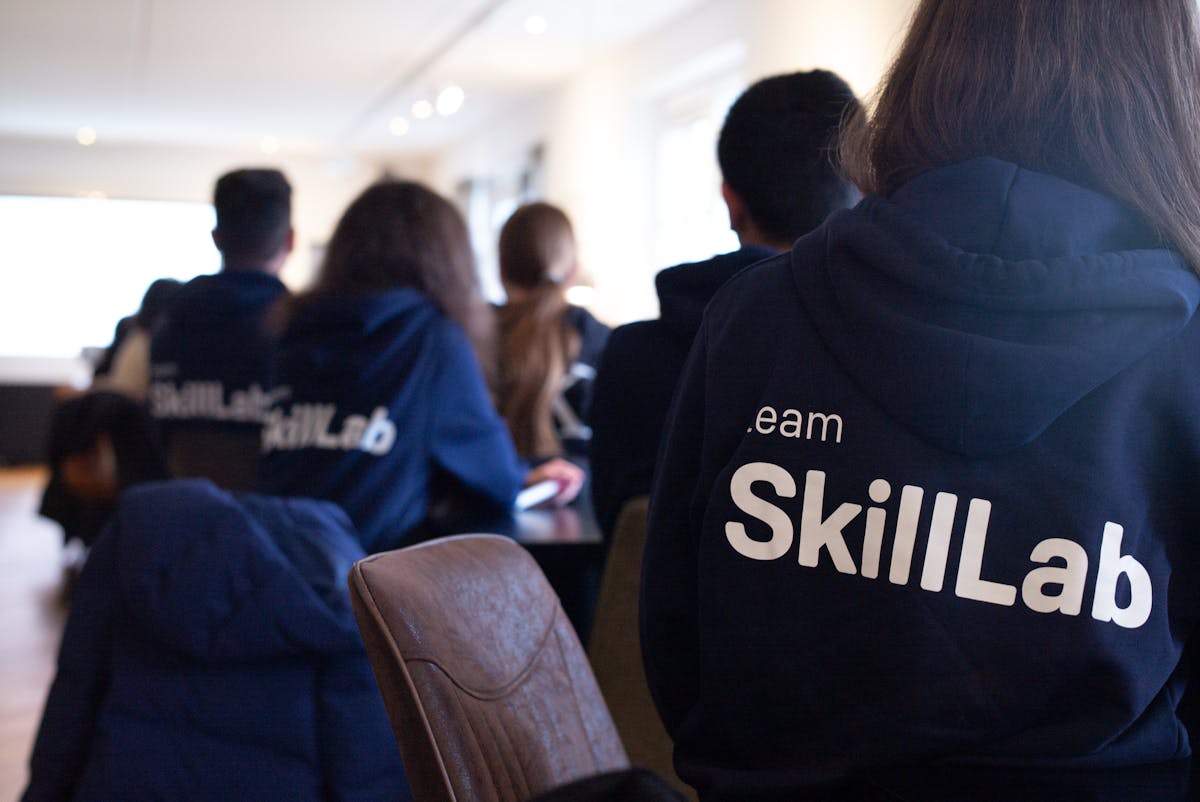Elevating Growth: SkillLab's Approach to Performance Management
At SkillLab, we are committed to compensate SkillLabers fairly based on their performance.
While you were already able to read about our compensation framework, you will learn about our performance management system in this post.
The performance management system allows us to identify, reward, and celebrate SkillLabers who are performing well, and to provide effective support and guidance to those who are facing challenges. This system is more than just a procedure; it's a reflection of our core value of learning and empowers every team member to do their best.

Key elements of the system
We believe in continuous improvement. Our performance management system is no exception. Based on feedback we received from SkillLabers, we have developed the system over time. At this point, the system includes:
- Clear expectations
- Evaluations against expectations
- Performance outcomes
- Simple rules around salary increases and promotions
- Salary benchmarking
- Team lead calibration
- Efficient review process
Let’s have a look at each element one-by-one.
Clear expectations
To facilitate conversations and assessments about performance and growth, SkillLabers are evaluated based on these expectations:
- General expectation: SkillLabers can access an overview of general expectations towards everyone working at SkillLab. They include professional expectations like problem-solving, execution, a learning mindset, collaboration, and communication.
- Role-related expectation: SkillLabers can view expectations for their role that are broken down by career level. These provide detailed requirements specific to each role (e.g., software developer, product manager).
We encourage ongoing dialogue and feedback between SkillLabers and team leads about those expectations.
Evaluations against expectations
As part of the performance cycle, SkillLabers complete three types of reviews:
- Self-assessment: The self-assessment allows SkillLabers to reflect on their own performance. Everyone completes a self-assessment. The self-assessment is visible to the SkillLaber’s team lead. It is an important foundation for the conversation between team members and team leads.
- Team lead review: Team leads review the performance of their team members against the expectations. This is the ‘classical’ performance review.
- Team member review: To ensure that team leads know what is expected of them, we developed expectations for team leads. Team members review how their team leads perform against those expectations. While this is an unusual element for a performance management system, it is crucial to hold team leads accountable towards those expectations.
Performance outcomes
To ensure clarity and consistency, team leads categorize performance into three areas:
- Good performance: SkillLabers who are proficient and effective in their current role, consistently delivering value. This means increasing proficiency (becoming faster and better) without expanding responsibilities to the next career level.
- High performance: SkillLabers who not only excel in their current role but also take on responsibilities at the next career level. This involves both increasing proficiency and expanding the scope of their contributions.
Low performance: SkillLabers who consistently fail to meet general or role-related expectations. In these situations, the team lead provides coaching and support.
Simple rules around salary increases and promotions
"Good" and "high" performance is rewarded through salary increases and promotions:
- Salary Increases: SkillLabers who demonstrate increased proficiency within their current career level may be eligible for a salary increase.
- Promotions: SkillLabers who have been performing at the next career level for at least one performance cycle (approximately 6 months) may be eligible for a promotion.
While performance is evaluated twice per year, SkillLabers are eligible to receive an increase only once every 12-months. Eligibility is case-specific, and good performance does not guarantee an increase every 12 months.
Salary benchmarking
You can read about SkillLab’s compensation framework in another post. In a nutshell: Salaries are benchmarked. Each career level (Junior, Intermediate, Senior, Staff, Principal) has a salary range, with the 50th percentile as the anchor. Salary compensation is an integral part of our system to allow for fair and transparent compensation.
To illustrate career progression, consider a junior software developer who demonstrates good performance. They may receive a salary increase after showing sustained proficiency. If they then begin taking on responsibilities at the intermediate level and consistently perform well, they become eligible for a promotion and a more significant salary increase.
Team lead calibration
While HR drives the performance management process, team leads convene for a calibration meeting to ensure transparency, coherence, and accountability. The purpose of this meeting is to discuss and finalize proposals for salary increases and promotions.
This calibration across team leads allows SkillLab to allocate the budget to those SkillLabers that most deserve a salary increase or promotion.
Efficient review process
Performance is evaluated twice per year. Here is how it looks like:
- SkillLabers complete review forms: This involves self-assessments by team members, performance evaluations by team leads, and team member evaluations of their team leads.
- Prepare for the performance review conversation: Team members and team leads review each other's assessments and identify any discrepancies.
- Have the performance review conversation: This is a two-way dialogue to discuss feedback, share perspectives, and align on performance outcomes.
- Team lead calibration meeting: Team leads meet to discuss and finalize proposals for salary increases and promotions, ensuring fairness and consistency.
- Announcements and communications: Decisions regarding performance outcomes, salary adjustments, and promotions are communicated to team members.
Follow-up through ongoing conversations: Performance management is a continuous process, with regular check-ins and career development discussions throughout the year.

SkillLab is committed to creating a supportive and empowering environment where our people can thrive. Our performance management system is a testament to this commitment, providing a clear framework for growth, and recognition.
If you're passionate about making a difference and want to contribute your talents to a team that values growth and collaboration, we encourage you to explore opportunities on our Career’s Page and connect with us on Skilllab Linkedin. We're always excited to connect with individuals who share our vision. Learn more about our hiring process in this blogpost.